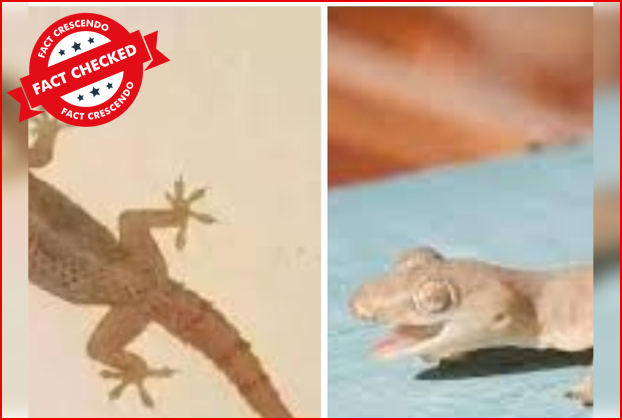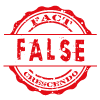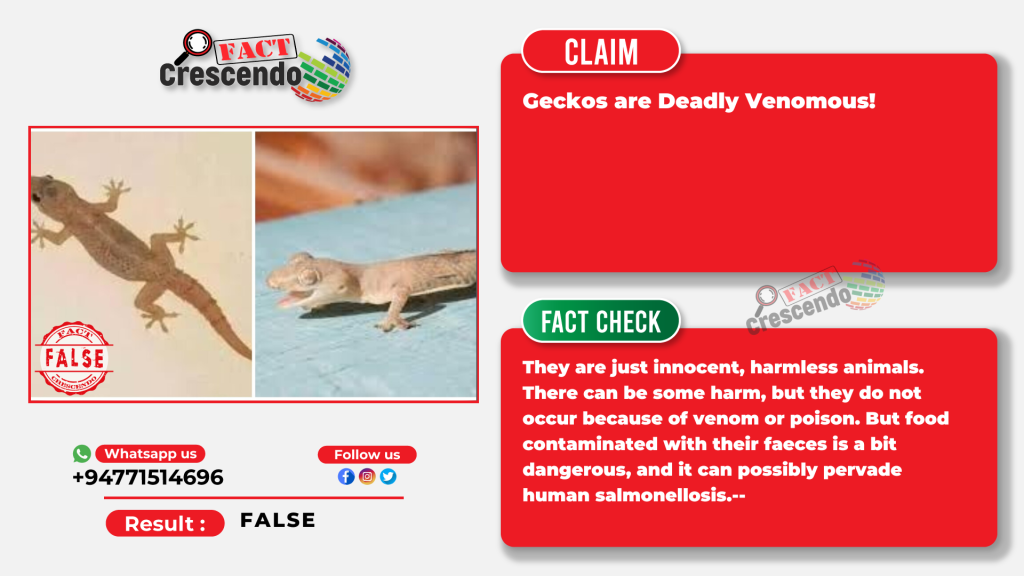
There were so many posts shared through Facebook and other social media mentioning that wall geckos are deadly killers and should be killed the exact moment you see them in your house. The original web article on that belief, considered the source for social media posts, can be read here. These posts were majorly based on African countries, and there were many negative as well as positive comments on these posts.

Users commented on it like below.

Geckos are very common in almost every area in Sri Lanka and South Asian countries. Mostly, the Sri Lankan kitchen is a central place where wall geckos can be found. If this fact is actual, most Sri Lankan people are in danger.
So, the Fact Crescendo team decided to do a fact check on the claim that ‘wall geckos are deadly venomous!’
Fact Check
Geckos in the World
Geckos are terrestrial reptiles that look like small lizards. They are known as the most diverse lizards on the planet. But they are the least well-recognized reptiles as well. There are almost 2000 species on the earth, which belong to seven families.
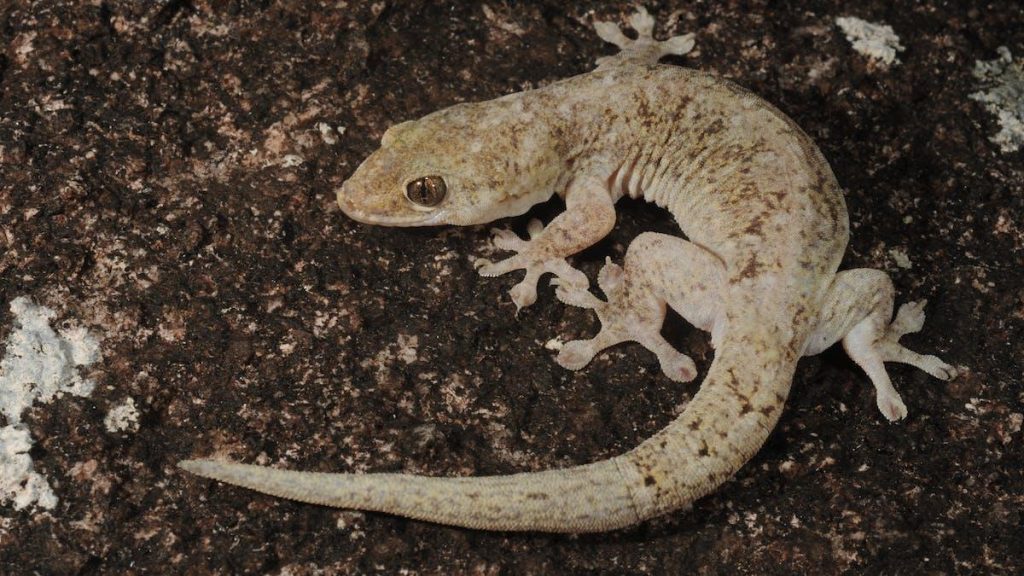
Due to its low temperature, Geckos can be found on every continent except Antarctica. But in other continents, geckos distribute under a higher diversity of climate and environmental conditions. They do not have a specific egg-laying season, so they lay eggs any month of the year. Geckos have a lifespan from 5 to 15 years. This varies according to the gecko species.
Usually, there is a vast range of colouration of geckos as well. The nature of their skin also has different textures. So some are warty while others have smooth skin.
Geckos are the paramount reptile which can be found as pets. Leopard geckos are a bit bigger with a longer lifespan than other gecko species and have nice colouration and pattern. So, they are commonly kept as pets.

Are Geckos Venomous?
Geckos are commonly known as carnivores, like many other reptiles. Geckos are not picky, so they eat almost anything smaller than them. Though their primary food is insects, sometimes they eat small molluscs, other types of geckos and their eggs and even smaller rodents as well.
When geckos are foraging for food, their sensitive sensors are their most helpful weapon. They have 350 times more sensitive eyesight than humans, higher hearing, better sense of smell and higher touch sensation. Those sensors help geckos while foraging for food to capture prey and escape and hide from predators. When the gecko finds prey, it uses its tongue to catch them. That tongue is a bit similar to a frog’s tongue. It is long, flexible and coated in sticky saliva.

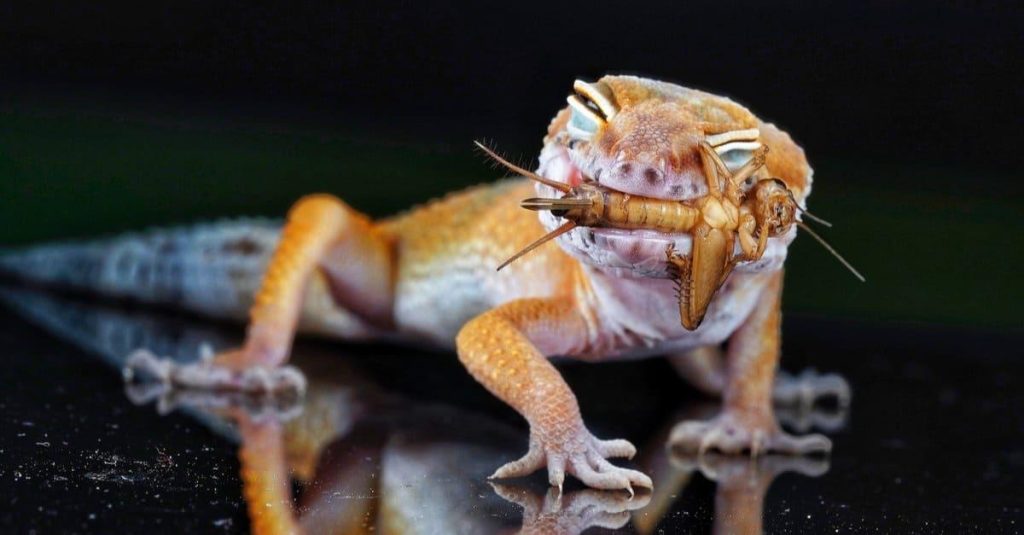
This tongue does not contain any venom to paralyse the prey. Lizards are just using tongues to grab the prey tightly, not to let the prey escape. Geckos put tightly captured prey into their mouths without killing them and eat them with their teeth by biting them.
Most of the time, geckos lick their eyes with their tongues because they usually become dry. By licking them, they could keep them wetter with the saliva layer of the tongue. So, gecko saliva, tongue or teeth are not included with any specific venom or poison.

Like all other reptiles, geckos have dry skin. But they do not bear scales. The most interesting characteristic of gecko skin is its antibacterial and water-repellent ability. Gecko skin is known as very clean by self-cleaning with these abilities. So, geckos are more hygienic than we think about them. Also, geckos shed their skin like snakes every month in adulthood due to maintaining precise growth, diet, metabolism and other biological factors. And then they eat their shed skin. Here for a video of geckos shedding their skin and eating it. From shedding, geckos lose a considerable amount of nutrients and minerals. Geckos can increase their nutrients by shedding skin, so they eat the shed. Because they need more nutrients to grow new skin, this amount from the shed is beneficial. This is the main reason for geckos to eat their own shed skin. More details can be taken here.
If the gecko skin consists of poisonous secretions, they won’t eat the skin right away. Geckos do not have glands in their skin. So, there is less probability of producing venom in that.

The shared posts mentioned that geckos are deadly poisonous and one can kill a man with less effort. But if it is that much toxic, how their predators prey on them? Typically geckos are prey for some animals. Sometimes more giant gecko species eat much smaller gecko species. Besides, birds, snakes, giant spiders, and sometimes cats and dogs eat geckos. But they neither die nor get any complications with it. Some animals inherited the poisonous skins as a protection tactic from their predators. But it is confirmed that geckos do not have that characteristic, so they were captured by their predators easily. What they have for their survival is their colouration and patterns, which match their habitat.
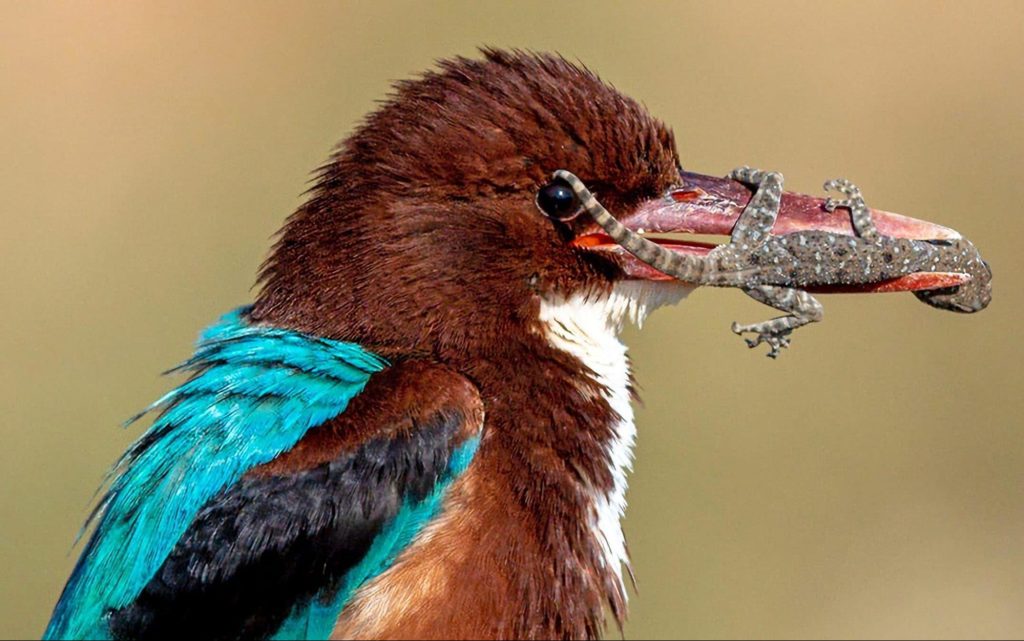
Also, experts and researchers have confirmed that typical geckos are non-venomous animal species for humans and many other animals.
So, geckos do not contain or do not secrete any venomous or poisonous chemicals from their body, and they are harmless as an animal.
Are there any other ways for geckos to harm humans?
Geckos have small teeth in their mouths. So, there is a possibility of getting gecko bites. Though their teeth are too small and have less power to penetrate human skin, bacterial infection can be caused if those teeth penetrate the skin. Usually, it does not hurt much and leaves a small scar where they bite. Large gecko bites can be more dangerous than small ones.
Anyway, while handling geckos, protection is essential from their bites. If they bite, washing hands using an antibacterial soap is necessary.
However, no venom or toxic issue occurs with gecko bites. While keeping them as pets, gecko bites are usually happening, but none of them were venomous or deadly bites.
Food Poisoning and Disease Carrying of Geckos
Like other house pests, geckos can carry diseases towards humans. Primarily, geckos are known for having Salmonella. Salmonella infection occurs with diarrhoea, fever, abdominal cramps, nausea and vomiting. It was proven that the gecko faeces carrie Salmonella bacteria, and Salmonella can survive in gecko faeces for a comparatively more extended period. Here is a research article on that from Vietnam.
So, geckos are the primary type of reptiles known as a risk factor for human salmonellosis because geckos live very close to humans.
Is There Any Advantage from Geckos?
Geckos eat many insects that can be found in the household and irritate humans. Some of these insects are pests. Geckos hunt cockroaches, bugs, termites, ants and many other pests. So, keeping the ecological balance of the environment and helping humans from decreasing the number of problems is the central help from geckos.
And some types of geckos are used as an ingredient in Chinese medicines. For example, In Chinese medicine, Tokay geckos are believed to be a good ingredient in the ‘ Ge Jie’ treatment to nourish the kidneys and lungs.
Geckos in Sri Lanka and Their Effect on Sri Lankans
Geckos are very common all around Sri Lanka. There is a higher diversity of geckos in Sri Lanka. There are about 61 species of geckos in Sri Lanka. From them, all species which belong to the genus Cnemaspis are endemic to Sri Lanka. Here for more details on Sri Lankan geckos.
(Hemidactylus frenatus) are the most common geckos in Asia. They naturally live in tropical rainforests with high humidity, but it has adapted to human habitations. These typical house geckos are also non-venomous and non-poisonous to humans or other species. This gecko species is aggressive towards the other geckos and can commonly be found fighting with others.
In Sri Lankan houses, these geckos can be seen running on the wall and roof. The eggs and their faeces also can be easily found. With more food sources, geckos are usually found in the kitchen areas. These geckos eat spiders and other insects mainly. They try to reach their prey through the whole house area. So, they travel almost everywhere in the house. So, there is a higher possibility for human food to contaminate with gecko faeces.

They sometimes eat human food as well. Luckily because they are non-venomous or non-poisonous, it does not have a negative health impact on humans. But food contaminated with their faeces is dangerous and can pervade human salmonellosis.
Also, there is a traditional Sri Lankan method of making predictions using geckos. Geckos make different types of noises. Sri Lankans use these sounds in forecasts. Also, they fell when the geckos could not keep their balance with their suckered feet. This is a widespread incident. Sri Lankan people predict a human’s future if a gecko has fallen onto that human.
Anyway, with a higher increase of house geckos, protecting their food from geckos has become a challenge to Sri Lankan people. To keep food safe, they have to pay more attention to closing the lid of containers and not to keep food open without any package.
This is the main challenge Sri Lankans have faced with geckos, and that is only affected by house geckos.
Follow us and stay up to date with our latest fact checks.
Facebook | Twitter |Instagram | Google News | TikTok
Conclusion
The posts which were shared mentioning that the geckos are deadly venomous or poisonous even than snakes are incorrect. They are just innocent, harmless animals. There can be some harm, but it does not occur because of venom or poison. But food contaminated with their faeces is dangerous and can pervade human salmonellosis.



